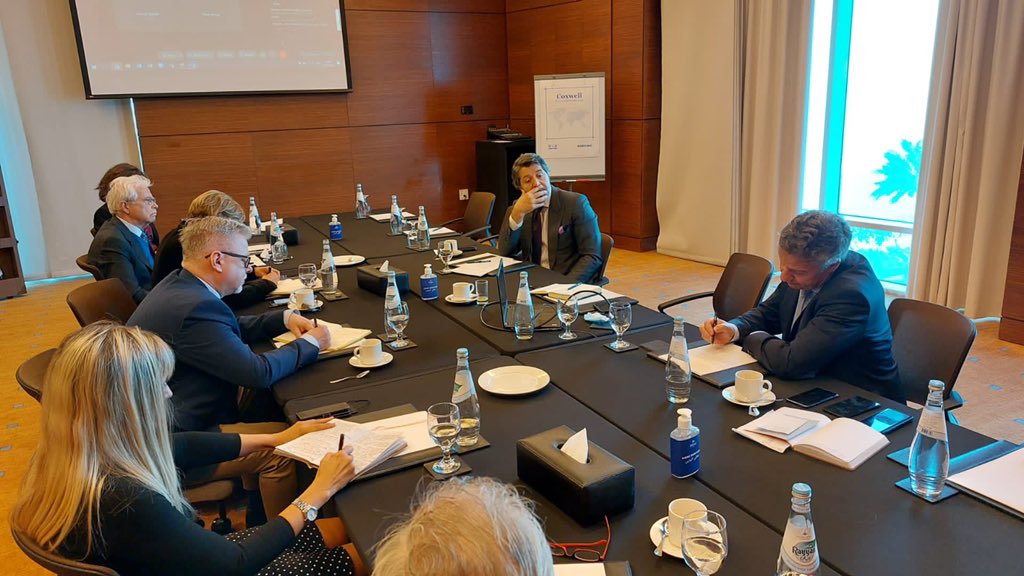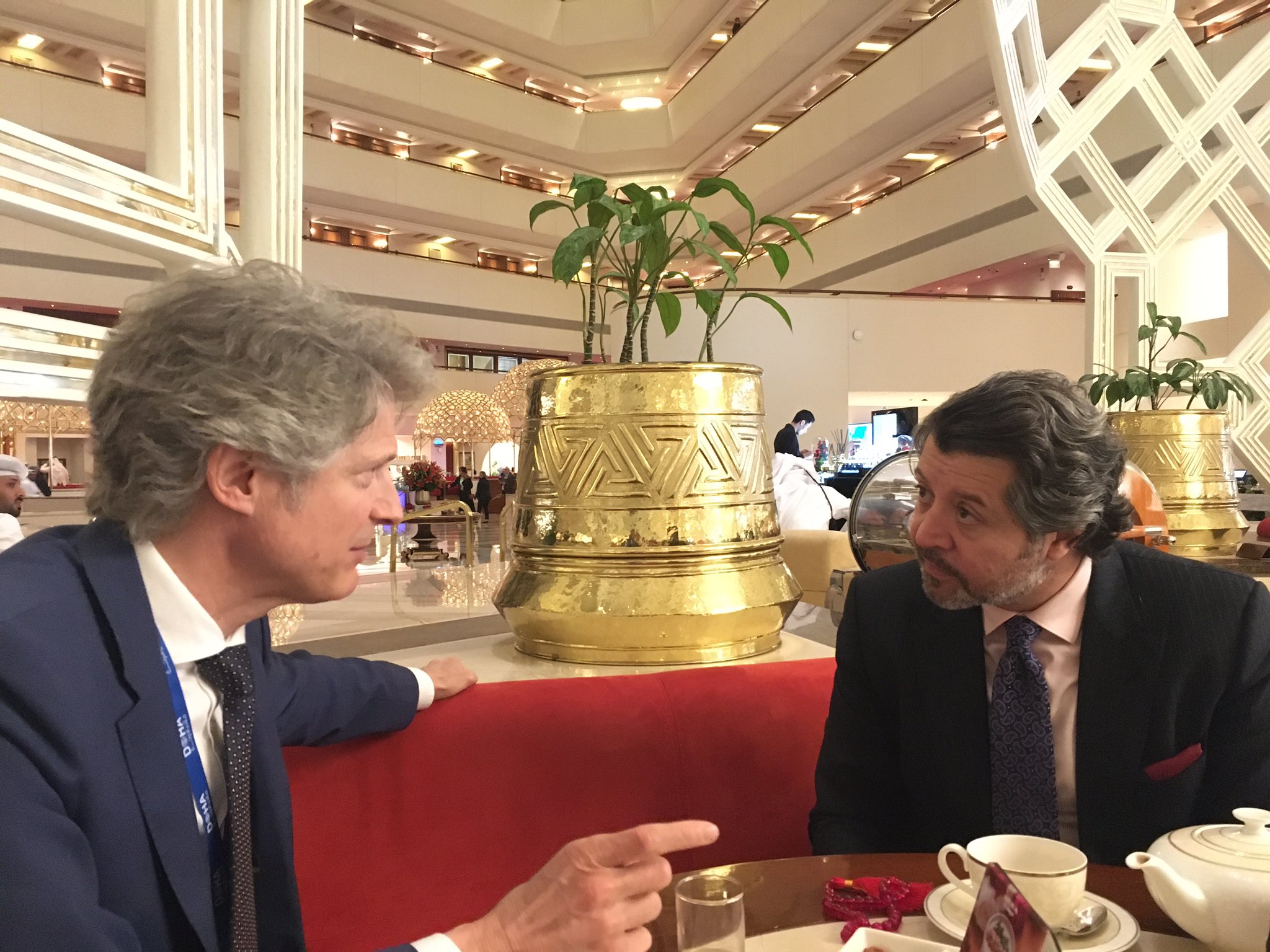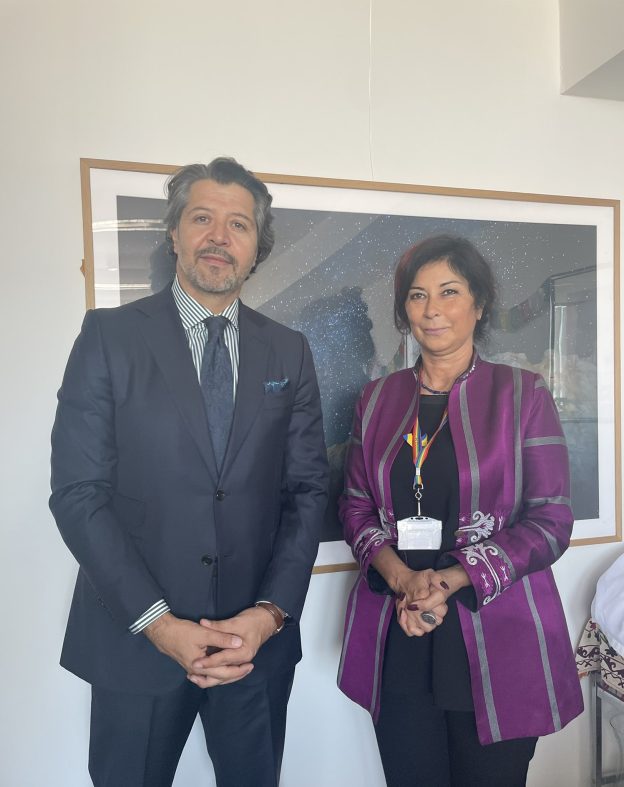Mr. Karzai and the civil society members exchanged views about the Pak-Afghan relations and the recent developments that have taken place in Pakistan Afghanistan relationship after the Trilateral Summit in London. Mr. Karzai began with the historical and cultural relationship between the people of Afghanistan and Pakistan. He gave a brief overview of the current events such as political transition that will take place in April 2014, the security transition and its effects on security in the tribal areas, and finally he stressed the economic transition which is crucial to state building and building confidence among the regional countries through economic ties which has not been center of much attention for the last decade.
Pak-Afghan dialogue was center of the discussion after 2014. One of the dominant subjects of the discussion was the post 2014 Afghanistan and its relation to peace reconciliation. Mr. Karzai said that post 2014 Afghanistan must not be seen as the beginning of the end because Afghanistan has a long history as a nation and it will continue to succeed as a country.
Additionally, he pointed to the positive consequences of transitions that will take place in post 2014 Afghanistan that will create employment opportunities that will not only offer the daily option of living for people but it will also contribute to elimination of narcotics and opium poppy cultivation.
Moreover, he added that peace reconciliation process must not be seen as a project. In the last decade, the peace process led as a project by the international community has resulted in failure. Therefore, the ownership of the process is important that would determine the outcomes of the process. Both sides agreed upon a political solution that would ensure peace and stability in Afghanistan. Mr. Karzai emphasized upon feasible policies and intellectual dialogue acceptable to the government and the Taliban for guaranteeing the process.
In addition, Mr. Karzai answered questions regarding the Kabul-Washington Bilateral Security Agreement (BSA), and he added that singing BSA would result in the United States presence to stay in Afghanistan for another 10 years. “The United States must respect the sovereignty of Afghanistan and counter terrorism operations might result in increasing violent opposition in respect to US long-term presence in Afghanistan”, Said Mr. Karzai.
The discussions, at last, circled around building trust and confidence between Pakistan and Afghanistan relationships. Mr. Karzai added that both Afghanistan and Pakistan has been facing number of challenges including insurgency, economy and other security issues. It should not be calculated as a zero-sum game between Pakistan and India on the regional basis to determine the winner. Mr. Karzai, therefore, concluded the meeting by saying that Pakistan and Afghanistan must share their grievances and both sides have to make hard decisions by recalculating their strategy regarding sustainable Pak-Afghan relations.
The Pakistani civil society delegation included Raza Shah Executive Director of Sustainable Peace and Development Organization (SPADO), Kamran Khan Country Director of Alliance for Peace and Disability Rights, Sardar Samiullah Youth Prime Minster of the Youth Parliament of Pakistan, Ms. Sadia Rafique, Ms. Saima Tufail, and Fayaz Mughal M.phil students of Peace and Conflict studies, Mr. Pardis Herat civil society representative and others.






Leave A Comment